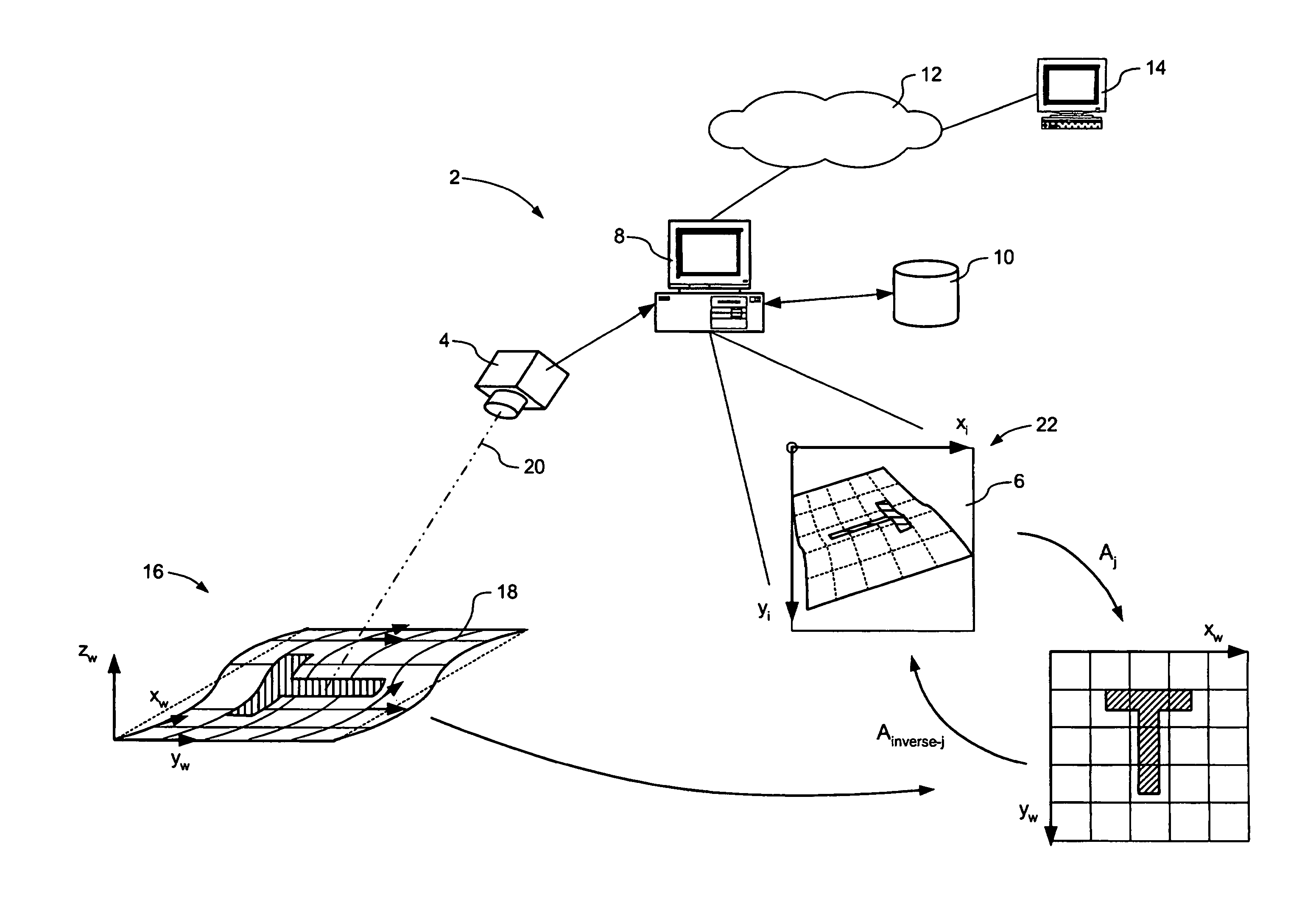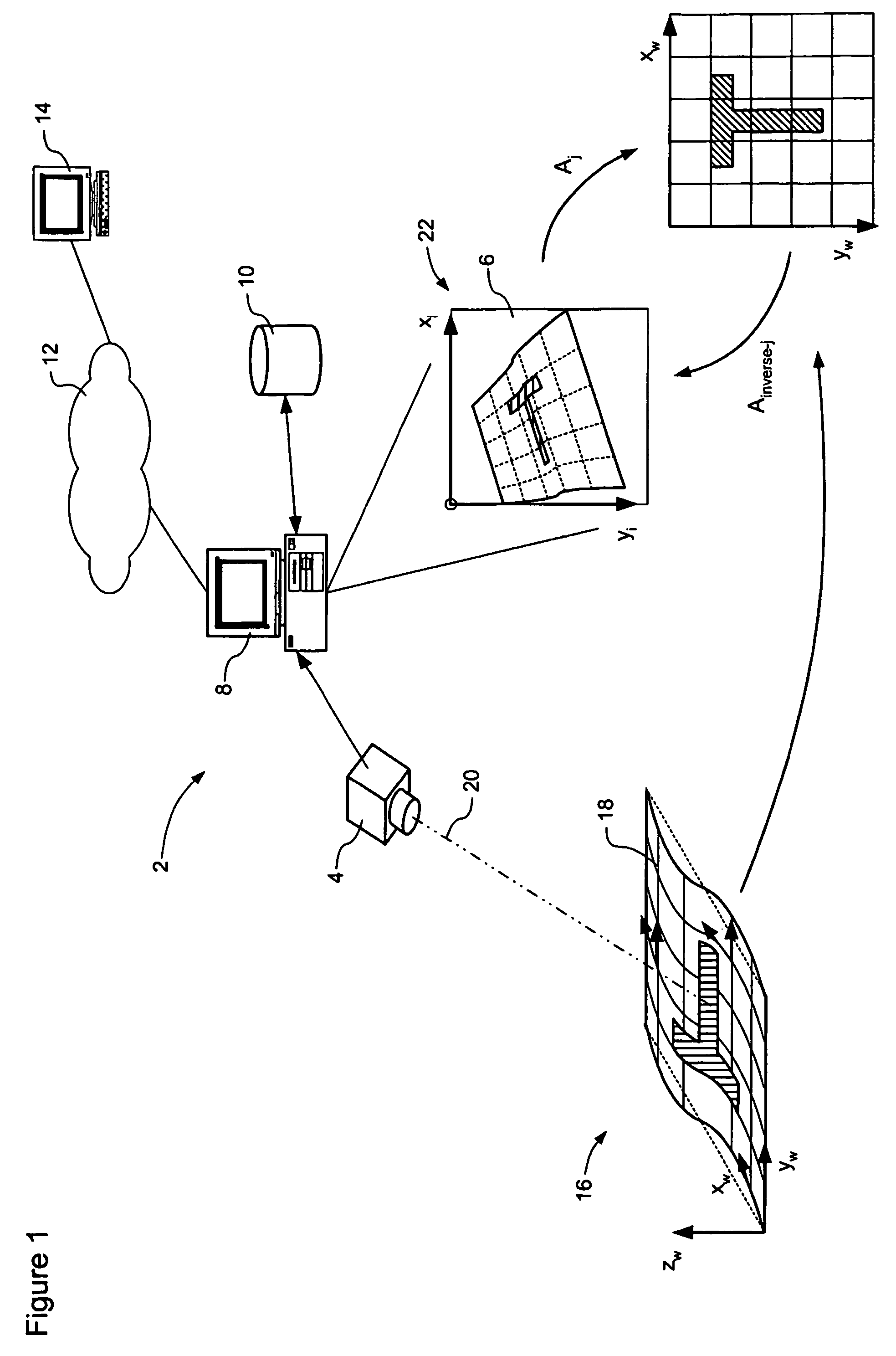Model-based recognition of objects using a calibrated image system
a model-based and image-based technology, applied in image analysis, instruments, computing, etc., can solve problems such as failure of these methods, distortions, and introduction of perceptual distortions
- Summary
- Abstract
- Description
- Claims
- Application Information
AI Technical Summary
Problems solved by technology
Method used
Image
Examples
Embodiment Construction
[0035]The present invention provides a method and apparatus enabling efficient recognition of an object using a calibrated visual environment. FIG. 1 is a schematic diagram illustrating principle elements of an exemplary system in accordance with the present invention.
[0036]As shown in FIG. 1, the system 2 comprises an image acquisition device 4 for acquiring an image 6; a processor 8 for analyzing the acquired image 6 (and, if desired, displaying the acquired image and / or any analysis results); and a database 10 containing model data respecting one or more models. The processor 8 can be provided as any suitable combination of hardware and software, such as, for example, a suitably programmed general purpose computer. If desired, the processor 8 can be linked through a network 12 (e.g. a LAN or the internet) to a remote workstation 14, as will be described in greater detail below. The database 10 may be stored within the processor 8, or, if desired, stored at a remote location and a...
PUM
 Login to View More
Login to View More Abstract
Description
Claims
Application Information
 Login to View More
Login to View More - R&D
- Intellectual Property
- Life Sciences
- Materials
- Tech Scout
- Unparalleled Data Quality
- Higher Quality Content
- 60% Fewer Hallucinations
Browse by: Latest US Patents, China's latest patents, Technical Efficacy Thesaurus, Application Domain, Technology Topic, Popular Technical Reports.
© 2025 PatSnap. All rights reserved.Legal|Privacy policy|Modern Slavery Act Transparency Statement|Sitemap|About US| Contact US: help@patsnap.com



